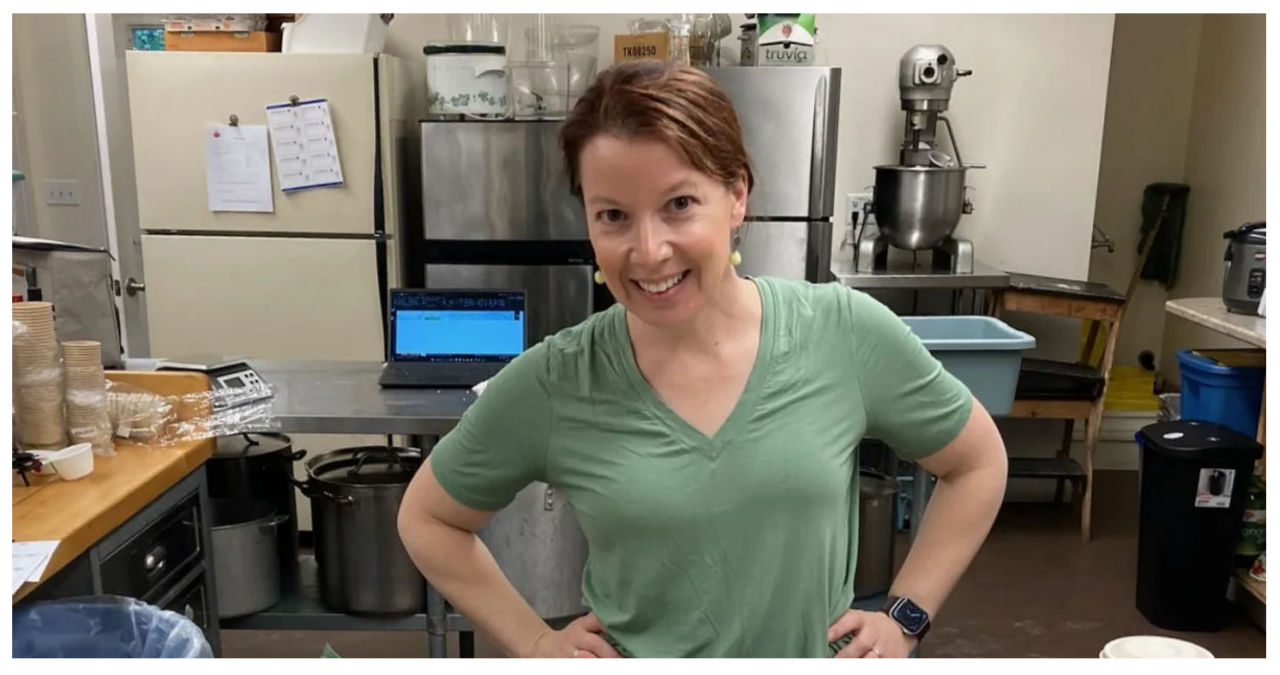In the past ten years, a thriving industry has emerged, catering to busy home chefs who receive convenient meal kits delivered to their doorsteps. These kits include well-defined recipes and precisely portioned ingredients, thoughtfully packaged for easy preparation.
However, national meal kit brands like Blue Apron and Hello Fresh have some drawbacks. One major concern is the lack of transparency regarding the origin of their ingredients. Additionally, these meal kits contribute to environmental issues due to the excessive use of plastic and cardboard packaging.
A new Maine business has recently adopted the meal kit concept, but with a unique twist: it operates on a local scale and aims to reduce the reliance on single-use packaging. Meet Kate Pilotte, the founder of Farm & Fish, which launched in Castine last summer. Frustrated by the excessive plastic waste found in traditional meal kits, Kate decided to take matters into her own hands.
Meeting that part of her mission hasn’t been easy due to state regulations that have limited her ability to distribute meals in reusable containers. However, there is a glimmer of hope as Gov. Janet Mills recently signed new legislation in early March that will eventually grant her the freedom to do so.
Customers have the convenience of ordering their meals from Farm & Fish’s website by noon on Monday. After that, Pilotte takes care of the rest. He procures the ingredients, prepares the meal kits, and ensures their delivery on Thursday. Currently, customers can pick up their orders at drop-off points in Blue Hill and Belfast, or have them delivered straight to their homes in Castine. Soon, a new drop-off point will be added in Ellsworth for added convenience. Additionally, customers can also purchase meal kits directly from Pilotte at the United Farmers Market in Belfast every Saturday.
“I believe it is crucial to provide choices for individuals who are interested in consuming locally sourced food,” Pilotte expressed. “I am truly enthusiastic about the unique position that Farm & Fish occupies in this regard.”
On the website, you can find a variety of delicious meal options to choose from. Some of the enticing choices include Moroccan pizza, Irish-stuffed cabbage wraps, and scallops with tomatillo sauce and cilantro-lime corn. The prices for these delectable meal kits vary, ranging from approximately $30 to $65, depending on the specific dish and the number of servings desired.
Sourcing the finest ingredients for our dishes is a meticulous process that can take several days. We go the extra mile to connect with local farmers and vendors in Maine, ensuring that we bring you the freshest produce available. From Wild Fruitings in Augusta, we handpick the most flavorful mushrooms. Hands Four Farm in Albion supplies us with vibrant and nutritious spinach. Meanwhile, Community Harvest in Unity provides us with the juiciest carrots. Each ingredient is carefully chosen to guarantee the highest quality in every dish we serve.
Pilotte emphasized the importance of sourcing ingredients locally. If she is unable to find a specific ingredient from a particular farmer or artisan, she makes it a point to purchase locally made alternatives from Hannaford. Furthermore, she ensures that her customers are aware of the origin of each ingredient used in her recipes.
Pilotte rents a commercial kitchen space in Blue Hill to prepare and package all of the meal kits. She carefully portions out all the ingredients so that customers can easily follow the recipes. Pilotte is mindful of minimizing food waste and only purchases what is necessary for the meal kits.
Pilotte, unfortunately, faced difficulties in achieving her objective of providing meal kits in reusable steel and glass containers. The intention was for customers to wash and return the containers to her for proper sanitization in the commercial kitchen.
When she embarked on her entrepreneurial journey, she was taken aback by the realization that she couldn’t operate her business within the confines of Maine’s food regulations. This was particularly surprising considering that the state had previously relaxed certain restrictions pertaining to reusable containers.
Pilotte expressed his disbelief and confusion, stating, “I was taken aback and shocked, and I didn’t fully comprehend the statement.” He further added that it appeared contradictory to suggest that businesses cannot reuse containers, as long as they follow proper safety and sanitization measures.
At present, she has been compelled to rely primarily on compostable containers for packaging, along with the use of plastics for liquids and other ingredients that may cause leakage.
After discovering the limitations, Pilotte took matters into her own hands and approached her local legislators. They collaborated on a bill known as LD 2091, which aimed to grant her the permission to utilize reusable containers. This legislation successfully passed through both chambers and was officially signed into law by Mills on March 6. However, it should be noted that the law will not be implemented right away.
Pilotte mentioned that by transitioning to reusable containers, her costs would be reduced by approximately six percent. While the percentage may not seem significant, she firmly believes that the elimination of plastics from the waste stream would make it a worthwhile endeavor.
Pilotte has plans to expand her business to a subscription model and serve the entire state once she begins using reusable containers.



